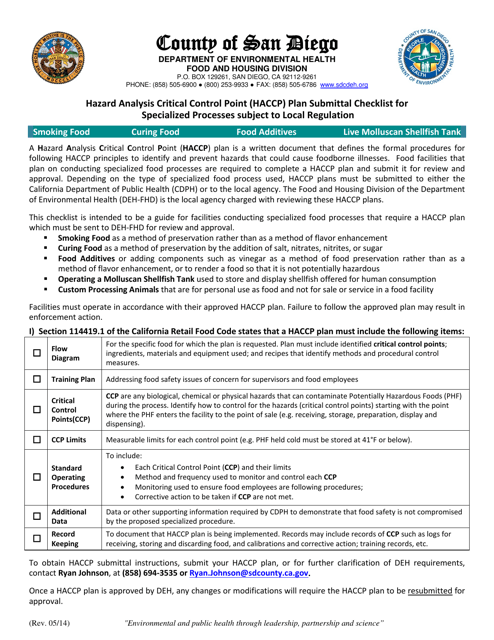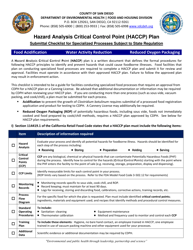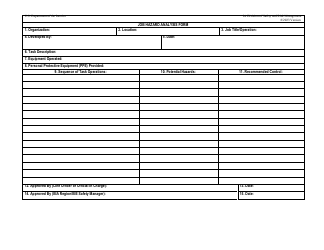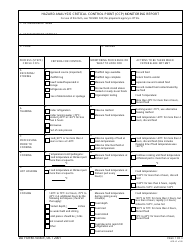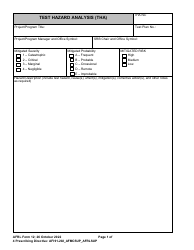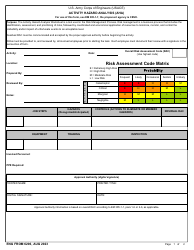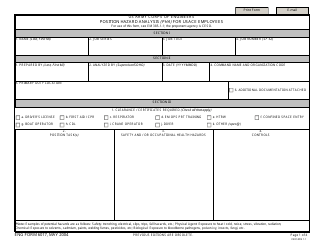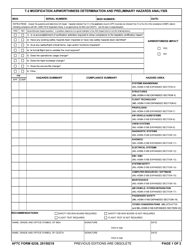Hazard Analysis Critical Control Point (Haccp) Plan Submittal Checklist for Specialized Processes Subject to Local Regulation - County of San Diego, California
Hazard Analysis Critical Control Point (Haccp) Specialized Processes Subject to Local Regulation is a legal document that was released by the Department of Environmental Health and Quality - County of San Diego, California - a government authority operating within California. The form may be used strictly within County of San Diego.
FAQ
Q: What is HACCP?
A: Hazard Analysis Critical Control Point (HACCP) is a systematic approach to food safety that aims to prevent, reduce, or eliminate hazards that can cause foodborne illnesses.
Q: What is the purpose of the HACCP Plan Submittal Checklist for Specialized Processes?
A: The purpose of this checklist is to ensure that businesses engaged in specialized processes subject to local regulation in San Diego County, California, submit a complete and accurate Hazard Analysis Critical Control Point (HACCP) plan for review and approval.
Q: Who should use this checklist?
A: This checklist should be used by businesses in San Diego County, California, that are engaged in specialized processes and are subject to local regulation.
Q: What is considered a specialized process?
A: Specialized processes are food preparation activities that involve unique or specific techniques, equipment, ingredients, or methods, which may require additional controls to ensure food safety.
Q: Why is it important to have a HACCP plan?
A: Having a HACCP plan is important to identify and control any potential hazards that may exist in a food processing operation, and to ensure that the food produced is safe for consumption.
Q: What information should be included in the HACCP plan?
A: The HACCP plan should include a description of the specialized process, identification of potential hazards, control measures to prevent or eliminate hazards, monitoring procedures, corrective actions, verification procedures, and record keeping requirements.
Q: What happens after the submission of the HACCP plan?
A: After the submission of the HACCP plan, it will be reviewed by the regulatory agency to ensure compliance with food safety regulations. Any necessary revisions or additional information may be requested before the plan is approved.
Q: Is the HACCP plan a one-time requirement?
A: No, the HACCP plan should be regularly reviewed and updated as needed to ensure ongoing food safety.
Q: What are the consequences of not having a HACCP plan?
A: Not having a HACCP plan can result in food safety issues, potential foodborne illnesses, legal consequences, and damage to the reputation of the business.
Form Details:
- Released on May 1, 2014;
- The latest edition currently provided by the Department of Environmental Health and Quality - County of San Diego, California;
- Ready to use and print;
- Easy to customize;
- Compatible with most PDF-viewing applications;
- Fill out the form in our online filing application.
Download a printable version of the form by clicking the link below or browse more documents and templates provided by the Department of Environmental Health and Quality - County of San Diego, California.
